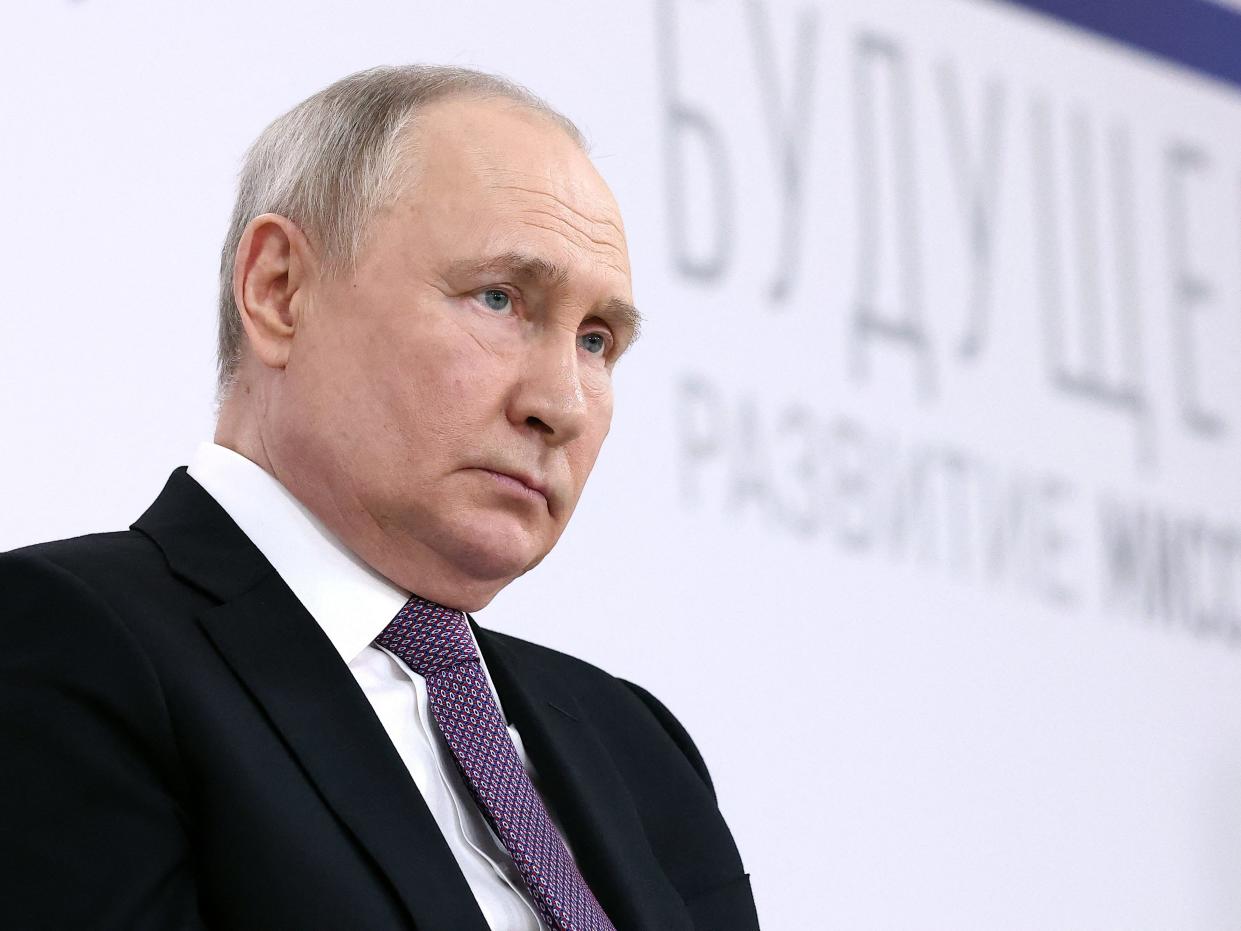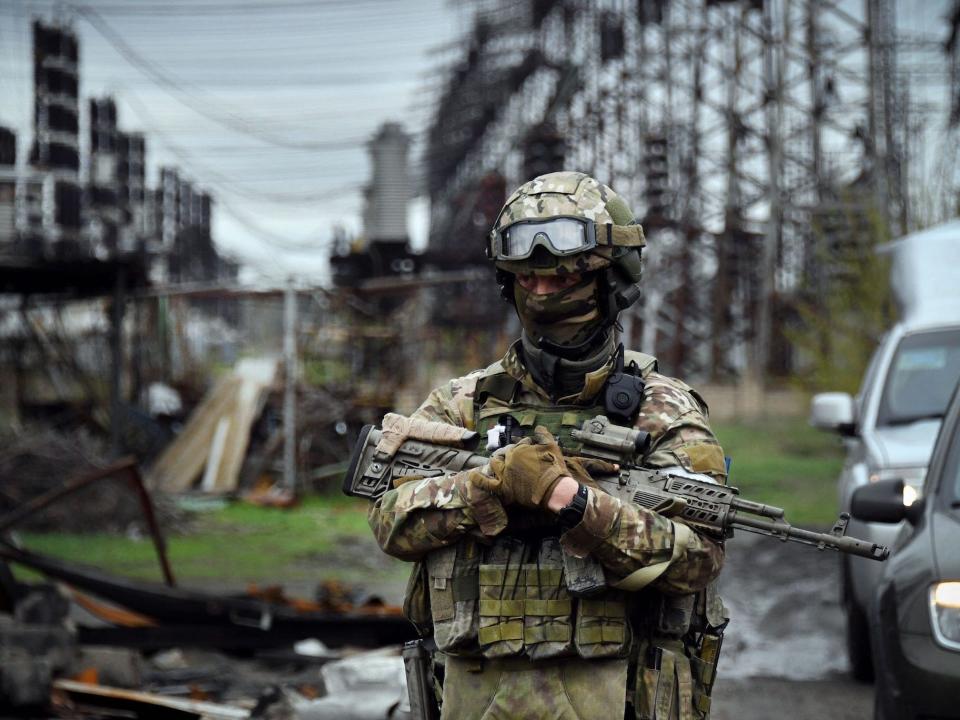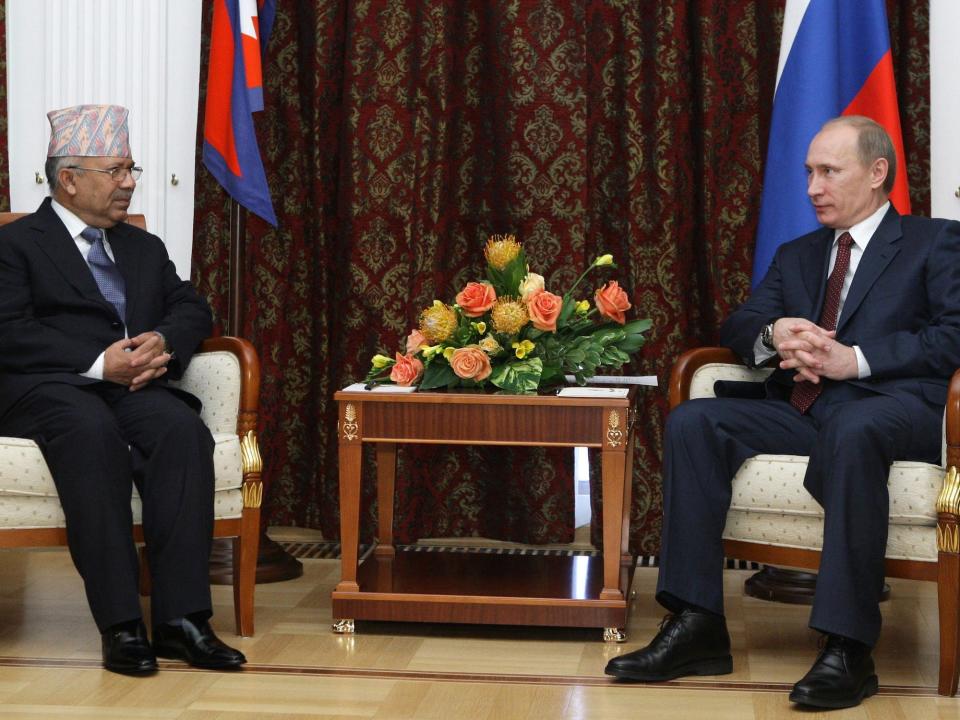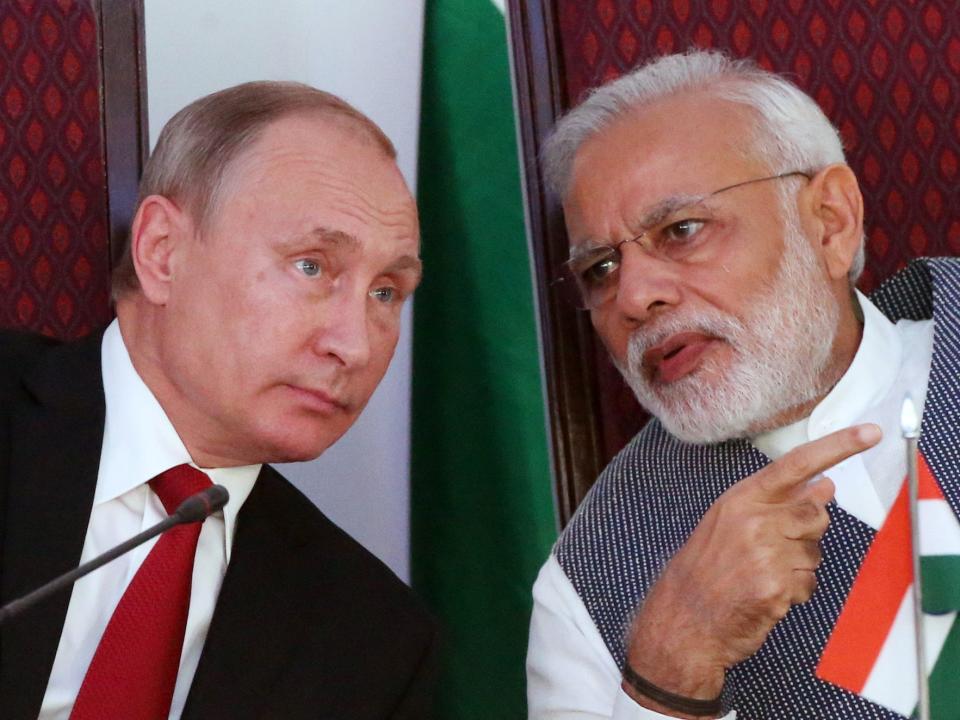Indian and Nepalese men say they were tricked into fighting for Russia in Ukraine and can't return home

- Oops!Something went wrong.Please try again later.
- Oops!Something went wrong.Please try again later.
Indian and Nepalese men are being coerced into fighting for Russia against Ukraine, a report said.
The men were apparently deceived by fake job ads and forced to sign military contracts.
India and Nepal have responded differently to their citizens being trapped in the conflict.
Countless Indian and Nepalese men have been forced into joining Russia in its fight against Ukraine, according to multiple reports.
At least 20 Indian men were reported by The Telegraph as being trapped on the front lines after being tricked with the false promise of job opportunities.
But the total number could be much higher, according to The Guardian, which noted that some estimates are in the hundreds.
Indian and Nepalese men told The Guardian that they had been pressured into signing military contracts written in Russian and that they couldn't leave because their passports had been taken.

The family of Hemil Mangukiya, a 23-year-old from the Indian state of Gujarat, spoke of the confusion and fear their son felt after being tricked onto the front lines.
Mangukiya traveled to Russia last December after watching a recruitment video on YouTube, The Guardian reported. He believed he was going to work in security — but when he arrived, he was taken to a military training camp and then to the front lines.
He died in a missile strike in Ukraine in late February, his family said.
Mangukiya's father, Ashwin, told The Guardian that the family is "devasted" and that they are "still trying to get back his dead body."
At least 26 Indian men have been tricked by recruitment videos by the YouTube channel Baba Vlogs, run by the Dubai-based Indian recruiter Faisal Khan, The Guardian said.
The channel falsely advertised military helper jobs that would not involve fighting on the front lines.
Khan told The Guardian that he had been "misled" by a Russian intermediary about the position and said he had "no idea they would be sent to a war zone."
"We are trying to get these people out of there now," he said.
Similar tactics have been used on Nepalese citizens. Speaking to The Guardian from an army hospital in Russia, Nandaram Pun, from the Rolpa district in Nepal, said that he had been offered a job in Germany and was told to go to Russia as a transit stop.
But like many others, he said he was taken to a military camp shortly after arriving in Moscow. He was later sent to Bakhmut in Ukraine, where he became injured in a drone attack.
"We had no idea about the drone attacks. My legs, thighs and right hand were hit by shrapnel," he said. "I don't want to be cured, because if they think I am better, then they will send me back to war again."
Pun said he had attempted to contact the Nepalese authorities in the hope of being rescued, but he had received no help.
India and Nepal's reactions have been completely different
The apparent coercive tactics used by Russia are significant, not just for those involved, but for Russia's respective relations with India and Nepal.
While Nepal has historically had a friendly relationship with Russia, the government has pushed back against its citizens being recruited.

In December, a spokesperson for the Nepal government said in a statement that it had requested the Russian government to "immediately return" the bodies of six Nepalese nationals killed in the war and pay compensation to their families, Reuters reported.
In February, the government barred citizens from working in Russia or Ukraine after the death toll increased to 12, and countless others were reported missing from the front lines.
A spokesperson for Nepal's Ministry of Foreign Affairs told The Guardian they were working "constantly" to bring its citizens home.
While the exact number of Nepalese people still fighting in Russia is not known, the spokesperson said 245 families had filed petitions claiming that they had a relative trapped in the army, while five others have been recorded as prisoners of war by Ukraine.
India's reactions to the situation appeared to be less confrontational.

"We are aware that a few Indian nationals have signed up for support jobs with the Russian army," a spokesperson for the Indian Government said in a statement on February 23.
"The Indian Embassy has regularly taken up this matter with the relevant Russian authorities for their early discharge."
The spokesperson urged all Indian nationals to "exercise due caution and stay away from this conflict," but did not make an official ban.
India's relationship with Russia has only appeared to strengthen since the invasion of Ukraine, as it did not join the EU, the US, and other Western countries in imposing sanctions.
The leaders of the two countries have also made public exchanges during this period. Most recently, Indian Prime Minister Narendra Modi and Russian President Vladimir Putin had a phone call in January, where they discussed "the situation in Ukraine," Reuters reported.
Representatives for the Russian army, the Indian government, and the Nepalese government did not immediately respond to requests for comment.
Read the original article on Business Insider

